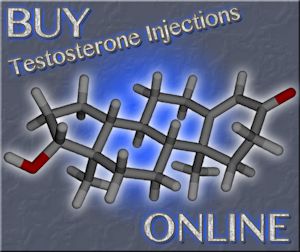Video Link: https://vimeo.com/293249789
Video Download: Click Here To Download Video
Video Stream: Click Here To Stream Video
Medical professionals across the country have seen a boom in men that are looking for Testosterone Therapy Treatments in order to mitigate the effects of Low-T and Andropause. This is partially because of the increased social-awareness regarding the effects of Testosterone Deficiency, which include weight  gain, loss of muscle mass, erectile dysfunction, and depression, but there is also some concern that the increased incidence of Low-T among aging men may also be the result of other factors, including Endocrine-Disrupting Chemicals, Obesity, and other Lifestyle Issues which contribute to declining Testosterone Levels among the male population.
gain, loss of muscle mass, erectile dysfunction, and depression, but there is also some concern that the increased incidence of Low-T among aging men may also be the result of other factors, including Endocrine-Disrupting Chemicals, Obesity, and other Lifestyle Issues which contribute to declining Testosterone Levels among the male population.
One of the most well-known experts in Low-T Treatment is Dr. Mark Rosenbloom. He is the director of the LIFEFORCE Medical Institute, a Hormone Clinic in Chicago, Illinois, which specializes in the use of HRT Treatments such as Testosterone Therapy to improve health and wellness with aging. As medical science grows regarding the effects of Hormone Imbalance and Deficiency on the human body, medical clinics such as LIFEFORCE will become both more prominent and more important in our quest to maintain good health throughout our lives.
New Research Shows that More Men Have Low-T than Ever
Playboy Magazine is known for more than just their centerfolds and beautiful models, they also engage in quite a bit of quality journalism, and a recent article explains the increased incidence of Low-T among aging men.
Evidence shows that males in the United States between the ages of 35 and 70 are at greater risk of Low-T and early Testosterone Deficiency than men of the previous generation. Because of Dr. Rosenbloom's knowledge and experience regarding Testosterone Treatment, he is featured heavily in the Playboy article.
One of the studies referenced in the Playboy provides strong evidence that Testosterone concentrations have fallen among men over the last 25-30 years. Specifically, men have around 22% less Testosterone than their peers from just one generation prior.
There are a variety of potential explanations for why men have less Testosterone than in the past, and many of these hypotheses likely play at least some role in declining Testosterone Levels.
For example, Endocrine Disrupting Chemicals are more common in our day-to-day lives than ever before. For instance, Bisphenol-A is a well-documented EDC and is present in a host of plastics that we use daily. Also, flame retardant chemicals and even foods like soy may contribute to declining Testosterone Levels.
Low-T Associated with Numerous Health Problems
For decades, evidence has mounted that Testosterone Deficiency increases the risk of a wide variety of health issues, including diabetes, fatigue, low libido, erectile dysfunction, obesity, elevated cholesterol levels, and hypertension. By treating these declining Testosterone Levels with Low-T Patches, Injections, or other treatments, it is likely possible to reduce the risks of these conditions and improve health and wellness among men (and even in some cases, women).
Health Insurance is a Barrier to HRT Therapy for Many
One of the significant issues with Low-T as it stands today is how insurance pays for medical treatment. Testosterone Deficiency and Low-T are major health issues that impact the lives of so many. Still, because the effects are so insidious  and underlying, they are often not covered under traditional health insurance policies, leaving them available for men with the money to pay for them, but leaving many in the lower portion of the economic scale without potent care that could provide them with life-changing benefit.
and underlying, they are often not covered under traditional health insurance policies, leaving them available for men with the money to pay for them, but leaving many in the lower portion of the economic scale without potent care that could provide them with life-changing benefit.
The structure of health insurance today helps pay for the treatment of symptoms, but not the underlying cause, as is the case with Low-T. Many men are put on blood pressure medication for hypertension. Still, they are not provided the opportunity to try Testosterone Therapy to resolve the underlying issue, which contributes to high blood pressure.
Many Medical Professionals Not Fluent in Providing Quality HRT Therapy
In addition to insurance impediments, Dr. Rosenbloom explains that many medical professionals that aren't well-experienced in Testosterone Therapy do not do their due diligence to protect their patients, which can increase the risk of certain conditions associated with abnormally high Testosterone Levels, such as stroke and heart attack.
Bio-Identical Testosterone Therapy is very safe and beneficial for patients that receive proper care, including full diagnostic evaluation and regular check-ups to ensure the safety and effectiveness of treatment.
In order to maximize the health and wellness of his patients and the  effectiveness of Testosterone Therapy, Dr. Rosenbloom uses a full comprehensive approach, including exercise and nutrition guidance, supplementation, and Bio-Identical HRT Treatment.
effectiveness of Testosterone Therapy, Dr. Rosenbloom uses a full comprehensive approach, including exercise and nutrition guidance, supplementation, and Bio-Identical HRT Treatment.
With Low-T Therapy and this comprehensive approach, it is possible to significantly improve health, increase vitality, and reduce the mortality rate among aging patients.
Contact Us Today For A Free Consultation

- Testosterone for Women [Last Updated On: December 1st, 2023] [Originally Added On: December 29th, 2013]
- Testosterone Androgen [Last Updated On: December 11th, 2023] [Originally Added On: December 29th, 2013]
- Testosterone and Body Building [Last Updated On: December 14th, 2023] [Originally Added On: December 30th, 2013]
- Testosterone Levels [Last Updated On: December 6th, 2023] [Originally Added On: December 31st, 2013]
- Testosterone Gel, Cream, and the Testosterone Patch [Last Updated On: November 28th, 2023] [Originally Added On: December 31st, 2013]
- Buy Testosterone | Types of Testosterone Replacement Therapy Programs, Injections, Cream and Gel [Last Updated On: December 13th, 2023] [Originally Added On: December 31st, 2013]
- Buy Testosterone Injections Online, Testosterone Prescription for Low T, Testosterone Replacement Therapy [Last Updated On: October 16th, 2020] [Originally Added On: January 1st, 2014]
- Aging and Testosterone Replacement Therapy [Last Updated On: December 12th, 2023] [Originally Added On: January 3rd, 2014]
- What Causes Low Testosterone [Last Updated On: December 10th, 2023] [Originally Added On: January 7th, 2014]
- Hormone Levels in Men [Last Updated On: December 4th, 2023] [Originally Added On: January 12th, 2014]
- Hormone Level Testing [Last Updated On: November 29th, 2023] [Originally Added On: January 13th, 2014]
- Types of Testosterone Products and Delivery [Last Updated On: December 8th, 2023] [Originally Added On: January 22nd, 2014]
- Testosterone Therapy Helps Men with Low-T Ward Off Prostate Cancer [Last Updated On: May 29th, 2024] [Originally Added On: December 29th, 2019]
- The Importance of Dietary Fat for Testosterone Production [Last Updated On: July 8th, 2024] [Originally Added On: January 2nd, 2020]
- The Effects of Testosterone Therapy on Male Patients -- Who Should Use Testosterone? [Last Updated On: December 20th, 2023] [Originally Added On: June 16th, 2020]
- Does Ibuprofen Contribute to Low Testosterone? [Last Updated On: January 27th, 2024] [Originally Added On: June 20th, 2020]
- The Link Between Testosterone and Lower Rates of Autoimmune Diseases Among Men [Last Updated On: January 30th, 2024] [Originally Added On: June 21st, 2020]
- Weight Cycling and the Problem with Crash Dieting [Last Updated On: April 8th, 2024] [Originally Added On: July 30th, 2020]
- Reexamining Bio-Identical Testosterone Therapy [Last Updated On: June 18th, 2024] [Originally Added On: August 12th, 2020]
- Understanding how Muscle and Fat Impact Body Mass, Weight, and Health [Last Updated On: April 15th, 2024] [Originally Added On: August 25th, 2020]
- The Role of Nitric Oxide in Cancer Proliferation And Prevention [Last Updated On: May 3rd, 2024] [Originally Added On: August 26th, 2020]
- Understanding Heartburn in the 21st Century [Last Updated On: April 24th, 2024] [Originally Added On: August 28th, 2020]
- What is Erectile Dysfunction? [Last Updated On: April 20th, 2024] [Originally Added On: August 30th, 2020]
- Sermorelin Acetate Drug Information [Last Updated On: April 7th, 2024] [Originally Added On: August 31st, 2020]
- Exercise and Mental Health [Last Updated On: April 5th, 2024] [Originally Added On: September 1st, 2020]
- The Importance of Proteins, Carbs, and Fats [Last Updated On: March 11th, 2024] [Originally Added On: September 2nd, 2020]
- Low-T Treatment Before and After -- How Testosterone Therapy Improves Vitality [Last Updated On: April 9th, 2024] [Originally Added On: September 6th, 2020]
- Changes to LabCorp Guidelines for Low-T Diagnosis and How They Impact Your Treatment [Last Updated On: July 14th, 2024] [Originally Added On: September 22nd, 2020]
- The Effects of Testosterone on Asthma Prevalence Among Men and Women [Last Updated On: February 19th, 2024] [Originally Added On: October 6th, 2020]
- 7 Exercises to Elevate Testosterone Levels [Last Updated On: June 13th, 2024] [Originally Added On: October 10th, 2020]
- Vitamin A is Essential for Good Health - Are You Getting Enough ? [Last Updated On: April 16th, 2024] [Originally Added On: October 14th, 2020]
- Testosterone and Diet – How to Support Testosterone Levels with Healthy Eating [Last Updated On: June 7th, 2024] [Originally Added On: October 29th, 2020]
- The Significance of Telomeres in Stem Cell Treatments [Last Updated On: March 16th, 2024] [Originally Added On: November 27th, 2020]
- The Influence of Testosterone on Protective Mating Behaviors in Men [Last Updated On: January 25th, 2024] [Originally Added On: December 6th, 2020]
- The Role of Testosterone in Women's Health [Last Updated On: December 24th, 2023] [Originally Added On: December 7th, 2020]
- Testosterone Promotes Bone Health and Can Help Treat Osteoporosis [Last Updated On: February 15th, 2024] [Originally Added On: December 17th, 2020]
- The Relationship Between Testosterone and Cortisol [Last Updated On: April 2nd, 2024] [Originally Added On: December 19th, 2020]
- The Importance of Sex Hormone-Binding Globulin (SHBG) for Healthy Testosterone Levels [Last Updated On: March 9th, 2024] [Originally Added On: December 28th, 2020]
- 12 Health Issues That Can Kill Libido and Limit Sexual Performance [Last Updated On: May 23rd, 2024] [Originally Added On: January 3rd, 2021]
- 4 Foods to Boost Your Testosterone Levels [Last Updated On: February 7th, 2024] [Originally Added On: January 4th, 2021]
- Low Testosterone Symptoms [Last Updated On: December 31st, 2023] [Originally Added On: January 7th, 2021]
- Is Male Menopause Real? The Science of Andropause [Last Updated On: January 15th, 2024] [Originally Added On: January 11th, 2021]
- Relieve Fatigue and Increase Energy with Testosterone Replacement Therapy [Last Updated On: January 16th, 2024] [Originally Added On: January 16th, 2021]
- How to Administer a Testosterone Injection -- Low-T Injection Guide [Last Updated On: February 28th, 2024] [Originally Added On: January 17th, 2021]
- Testosterone Levels Associated with Serotonin Activity in the Brain [Last Updated On: March 26th, 2024] [Originally Added On: January 19th, 2021]
- Grumpy Old Man Syndrome – Causes and Treatments [Last Updated On: June 8th, 2024] [Originally Added On: January 22nd, 2021]
- The Effects of Beer on Testosterone Production and Gynecomastia [Last Updated On: March 21st, 2024] [Originally Added On: January 30th, 2021]
- Testosterone Frequently Asked Questions [Last Updated On: February 6th, 2024] [Originally Added On: February 26th, 2021]
- Testosterone Supplements: Vitamin and Amino Acid Pills Versus Real Testosterone [Last Updated On: November 21st, 2024] [Originally Added On: March 1st, 2021]
- Testosterone Side Effects, Risks, Dangers and Negative Effects [Last Updated On: November 7th, 2024] [Originally Added On: March 2nd, 2021]
- Testosterone for Men [Last Updated On: February 20th, 2024] [Originally Added On: April 13th, 2021]
- Testosterone Testing [Last Updated On: November 9th, 2024] [Originally Added On: May 7th, 2021]
- Hormone Replacement Therapy: Commonly Asked Questions [Last Updated On: February 20th, 2024] [Originally Added On: June 16th, 2023]
Word Count: 778




















